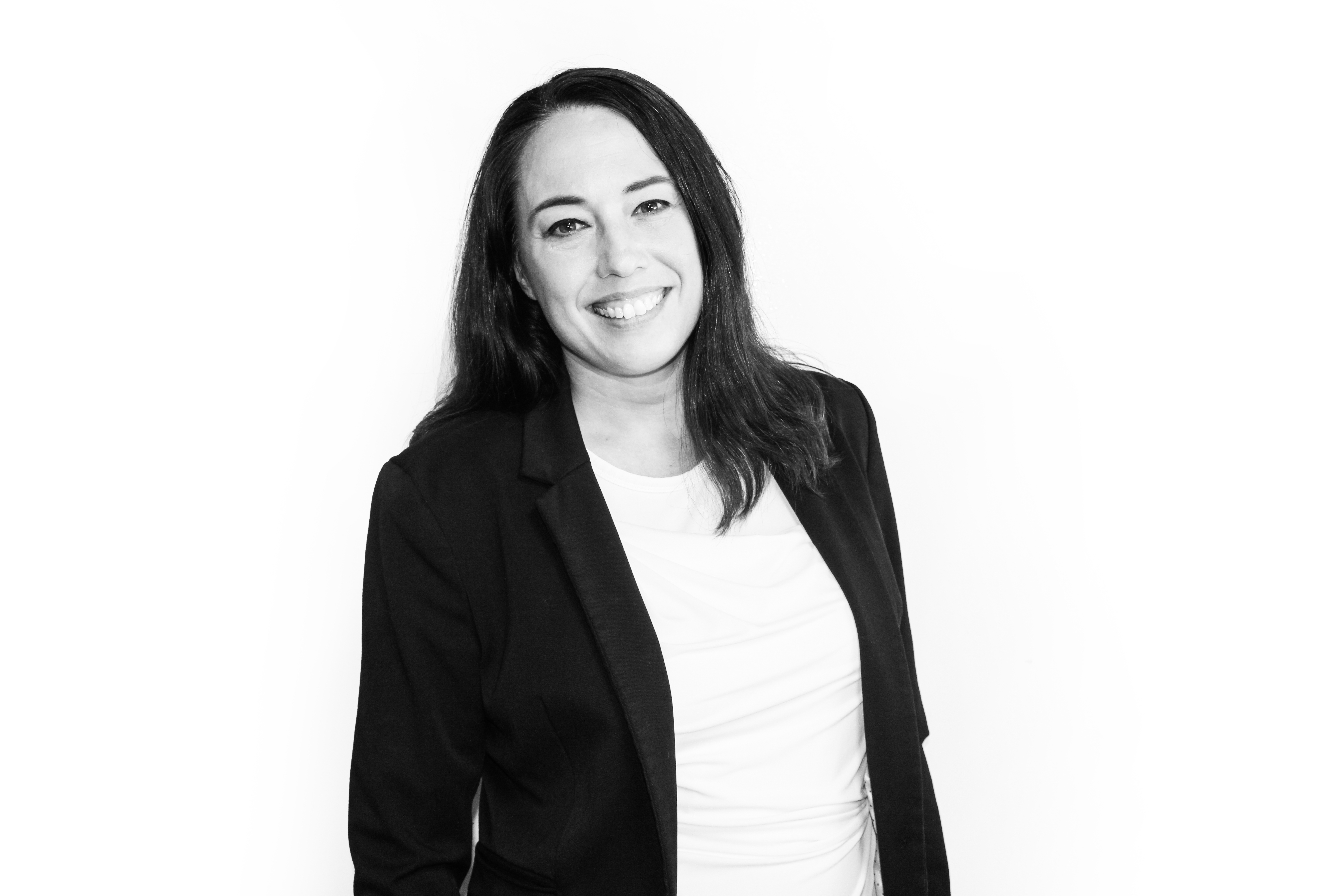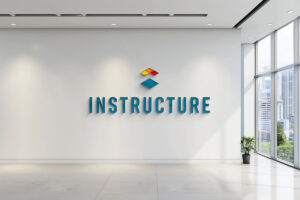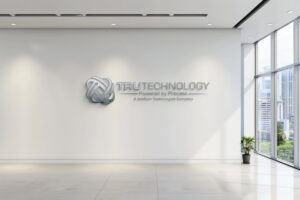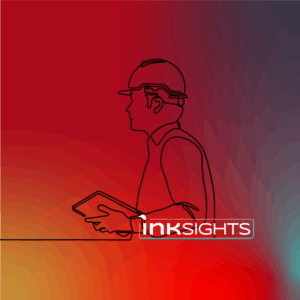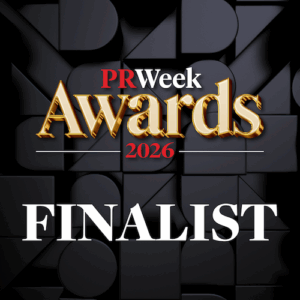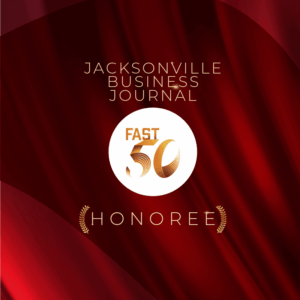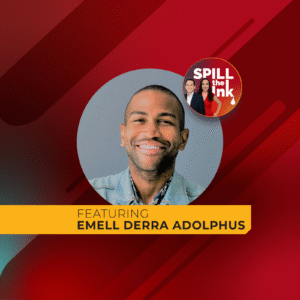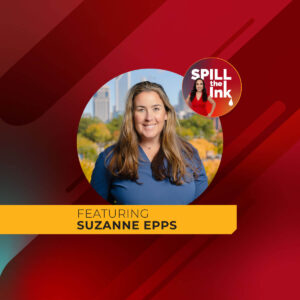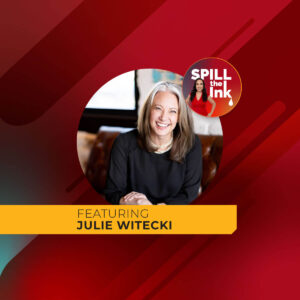
Spill the Ink: The Reputation Ink Podcast
Architecture Marketer Spotlight: Insights Into Strengthening a Firm’s Identity and Positioning
Jill Davis leads the marketing department at Cline Design, an interdisciplinary architecture, planning and interior design firm in North Carolina. She recently guided the 35-year-old firm through a successful rebrand and website redesign and is constantly re-examining Cline’s marketing strategy to meet evolving client needs.
In this episode, Jill and host Michelle Calcote King discuss Cline’s marketing strategy through the years, including its 2023 rebrand. They also cover how to encourage architects, designers and other subject-matter experts to contribute to marketing initiatives that showcase the firm’s expertise and culture, such as thought leadership and social media.
Here’s a glimpse of what you’ll learn
- Who Jill Davis is
- About Cline Design
- Why Cline decided to do a rebrand and how the marketing team approached the project
- Which marketing tools are the most impactful to Cline’s strategy and why
- Why invest in thought leadership and examples of common challenges
- Tactics for engaging busy subject-matter experts in content creation and marketing initiatives, including thought leadership and social media
- When to use your internal team to produce video content versus hiring a videographer
- How to integrate a public relations strategy into your communications plan
- The benefits of professional organizations like the Society for Marketing Professional Services
About our featured guest
Jill Davis has over two decades of expertise in marketing, including over 10 years of specializing in the architecture, engineering and construction (AEC) industry. Her journey in this sector began in 2013 with HOK in St. Louis, where she played a pivotal role in securing high-profile projects nationwide thanks to her innovative strategies and collaboration with both regional and senior leaders.
As a Principal and Marketing Director at Cline, Jill spearheads marketing initiatives and strategic planning. Her focus is on nurturing growth and exploring new opportunities that promise a bright future for the firm. At Cline, she finds daily inspiration in the creativity and insight of her colleagues, a talented team of marketers, architects, designers and branding professionals.
Jill’s commitment extends beyond her professional sphere. In St. Louis, she actively participated in the Society for Marketing Professional Services (SMPS), taking on various leadership roles. Her dedication to SMPS continued through her moves to Raleigh and Charlotte, where she serves as the 2024 President-Elect of the Charlotte chapter. Additionally, her alma mater, the University of Missouri-St. Louis, benefited from her contributions as a member of the marketing advisory board, where she mentored students and engaged in the Midwest Digital Marketing Conference (MDMC) scholarship committee.
Resources mentioned in this episode
- Check out Cline Design Associates
- Follow Cline Design on Facebook, LinkedIn and Instagram
- Connect with Jill Davis on LinkedIn
- Say hello to Michelle Calcote King on X and LinkedIn
Sponsor for this episode
This episode is brought to you by Reputation Ink.
Founded by Michelle Calcote King, Reputation Ink is a public relations and content marketing agency that serves professional services firms of all shapes and sizes across the United States, including corporate law firms and architecture, engineering and construction (AEC) firms.
Reputation Ink understands how sophisticated corporate buyers find and select professional services firms. For more than a decade, they have helped firms grow through thought leadership-fueled strategies, including public relations, content marketing, video marketing, social media, podcasting, marketing strategy services and more.
To learn more, visit www.rep-ink.com or email them at [email protected] today.
Transcript
[00:00:00] Jill Davis: You know, you never know how it’s going to be received if you’re not a marketing person, because it’s a lot of work and you’ve got a lot of different opinions. But I think the trust between the marketing team here, TOKY and the fact that all of the design staff was just yearning for something new really helped it along.
[00:00:20] Announcer: Welcome to Spill the Ink, a podcast by Reputation Ink, where we feature experts in growth and brand visibility for law firms and architecture, engineering and construction firms. Now, let’s get started with the show.
[00:00:37] Michelle Calcote King: Hi, everyone. I’m Michelle Calcote King. I’m your host, and I’m the Principal and President of Reputation Ink. We are a public relations and marketing agency for architecture, engineering and construction firms and other B2B professional services firms. To learn more, go to www.rep-ink.com.
Cline Design Associates is an interdisciplinary architecture, planning and interior design firm that has served North Carolina since 1989. The firm works across several markets, including residential, mixed-use, commercial, workplace, and renovation and reuse. Cline Marketing Director Jill Davis is here to talk about Cline and her team’s work to make the firm stand out in the architecture space.
So welcome to the show, Jill.
[00:01:19] Jill Davis: Thanks for having me.
[00:01:21] Michelle Calcote King: Yeah. I’m excited. Before the show started, we were kind of talking about, you know, it’s never a kind of direct path into professional services firms, and especially architecture. So kind of tell me how you got into this.
[00:01:33] Jill Davis: Yeah. I was listening to your podcast where your guest said “non-linear” and that may have been my favorite term for the path to this. Yeah, I spent 17 years — I’m going to date myself now — marketing groceries.
[00:01:44] Michelle Calcote King: Wow.
[00:01:44] Jill Davis: How that translates to architects is very interesting. So in that 17 years, I worked for a company that was kind of dissipating and there was just no security in the job.
So I happened to find those posting on LinkedIn for this global architecture firm that, you know, had 1,800 people worldwide. I’m like, “This sounds interesting.” Turns out it was HOK. So I went big coming into the AEC industry.
I knew nothing. I mean, I was in over my head there. There’s no mistaking that. But I had somebody, my former boss who I still talk to to this day, and who really, truly believed in me and helped me. And then for five years, I served as the marketing manager in HOK’s St. Louis office. So I learned a ton from them and it was– One of the things I love to do is learn new things. So there was no shortage of learning new things while I was there.
[00:02:35] Michelle Calcote King: I bet.
[00:02:35] Jill Davis: I spent five years there and kind of outgrew the position a little bit. A firm that size, you know, you have very detailed job descriptions of what you’re doing, whether you’re a proposal manager or marketing manager, what have you and I want it to do a little bit more.
So I found a job posting for Cline and the job posting really intrigued me because you could tell just by the posting, it was like, they want somebody to build something, you know, it’s the posting range from anything from like stationary design to like business development to doing proposals to planning events. It was so– It was just something that said, “Okay–” Normally people would kind of balk at that, right? Like, maybe that’s not for me. I’m like, “No, there’s something going on here.” And I knew it was the right fit when I came to interview. You walk in the doors here — and I worked in Raleigh first and the new Charlotte office — but I walked in the doors here and it was home. It’s very much just the culture. Everybody’s so welcoming and inviting and, man, it has been a journey and a blast. And I’ve been here for five years now. So in the industry for almost 11. Yeah, yeah.
[00:03:39] Michelle Calcote King: Love it. It looks like you’re making quite an impact, cause I know you guys recently went through a rebrand. Tell me about that. Why did you decide to do a rebrand and how was it received? Tell me about the why.
[00:03:53] Jill Davis: Yeah. So our visual identity didn’t really match who we were, right? We had outgrown it. We have very talented individuals from all across the U.S. When I started here, we were an 80-person firm. We’re now a 130-person firm. You know, we moved to the Charlotte office here and have already outgrown it in less than two years. So we’re this growing firm. We were going through a leadership transition. Our founder retired. So it was time. It was time to really kind of do that introspective look at who we are as a brand and who we are as a company and see if we’re still in alignment with our core values.
I will say the website sparked some of this. I think every marketer can tell you, it’s like, “Oh, we need to update our website.” And we were at that point, too. And we’re like, “Well, if we’re going to do this, we really need to take this moment since we’re transitioning, since we’re doing all these things. This is the moment where we do the overhaul if we need to.”
So we hired TOKY out of St. Louis. It’s no surprise that it was out of St. Louis because– Or it’s no coincidence. That’s where I’m from and I knew the firm. They did help HOK with their rebrand. They come highly recommended and we hit it off with them. Like, they became part of the Cline family very quickly. And they helped us– They went through and did interviews with people across the firm, and not just like leadership-leadership, but they went all across the firm to really understand who we are and to pinpoint, as I always said, that culture that you just can’t put words to. It’s a feeling.
And they did a fantastic job just getting to know us, understand who we are, understand how we operate, our core values, and put it into not just messaging, but a visual identity and website. And it’s amazing how it turned out. And the team here– You know, you never know how it’s going to be received if you’re not a marketing person because it’s a lot of work and you’ve got a lot of different opinions. But I think the trust between the marketing team here, TOKY, and the fact that all of the design staff was just yearning for something new really helped it along. And we had them involved in the process, too. It wasn’t just interviews. We all got together, top leadership — so there’s probably like 30 of us sitting in a room in Raleigh away from all other humans and just having a focused half day where we said, “Okay, here’s who we said we wanted to be. Now let’s look at what our competitors are doing. Let’s look at what visual identities we like and we don’t like.” TOKY really took all that in and created what you see today. And it really does say who we are and we just, we love it. It’s been a lot of fun.
[00:06:21] Michelle Calcote King: That’s great. Well, tell me about the tagline, the ‘Imagine a Place’ tagline. What does that mean and how did you land on it?
[00:06:29] Jill Davis: Yeah. So ‘Imagine a Place’ was with us before this last rebrand. Back in about — before my time — so back in about 2016-ish, I want to say, we did a rebrand with another group and it was like a rebrand life kind of exploration. You know, it was, “Let’s change our colors, let’s change our logo.” W e kept the core values, like we didn’t explore the messaging too much, I think, in that particular rebrand. Not like the deep-dive we did this past round. And ‘Imagine a Place’ really came from the creativity of the people that we have here. It’s creativity with logic because we deal a lot with developers, that’s probably 95% of our clients are developers. So we always know that we have to balance the pro forma or we need to balance whatever it is, but we figure out ways to be creative with it. So not just, you know, designing a pretty building, but what materials can we use to help with the pro forma and keep it within budget and it still is a place that somebody is going to call home and be proud to call home?
So that’s kind of how that came about. We re-examined if we needed to keep that tagline and it was pretty much a resounding, “Yes.” It’s still who we are. We just added to it at this point. So now it’s not only that, but we position ourselves as the experts at designing the experience of living well. So a little hard to put that on a tagline, but it’s kind of our mantra internally.
[00:07:49] Michelle Calcote King: Yeah it’s interesting when taglines become something internally that people really grab onto and turn into something that’s kind of a rallying cry internally. I’ve seen that happen in companies and if you try to change it, you realize that it does really mean something to people internally and that means it’s impactful. It has meaning. So it’s not just a, you know, a throwaway marketing tool.
So that’s the rebrand and obviously, you know, our websites are the top marketing asset for any marketer, but tell me about your other marketing channels. Where do you place your most emphasis in your marketing? What are the highest performing channels for you?
[00:08:27] Jill Davis: Yeah. So I’m a data geek at heart. So I like to look at the analytics on our website, on our social media and see where we’re being most impactful; what messaging resonates. So our social media, I would say our LinkedIn and Instagram feeds are probably our biggest tool that we can use to communicate the fastest but to be also the most impactful.
Our website is — and I’m biased, I love it — you know, as beautiful as it is, it is a research tool. That’s like the second step in some cases of people getting to know us. So we realize one of our most impactful pieces that we can use is picking up that LinkedIn feed and finding a way to create some messaging around it. So we rely heavily on social media. E-blast, you know, it’s kind of a love-hate relationship, I’m not going to lie. Because we want to be–
[00:09:15] Michelle Calcote King: It is for everyone.
[00:09:16] Jill Davis: Right?
[00:09:16] Michelle Calcote King: It’s so difficult. Yeah.
[00:09:18] Jill Davis: And we don’t want to be just noise. At the end of the day, we want to have something that provides value to our clients or prospective new hires or even prospective clients.
So I would say a lot of what we rely on is definitely our social media and then we do a little bit of thought leadership. We’re still delving into that. What’s great about being, you know, a 30-year-old-plus company is we’re in a different stage of the life cycle than like an HOK is. So we’re still exploring new things that work for us and that are impactful and growing those things. So we’re really starting to focus on thought leadership. We’re using our website, our News and Ideas page for that right now. And we do a little bit of paid content here and there with some publications to help with that. But that is definitely our next, like, big focus is how do we really leverage thought leadership to be a good partner with our clients and help them with design or with a new site or what have you. You know, what can we say to help them in their daily lives?
[00:10:16] Michelle Calcote King: Love to hear that.
[00:10:17] Jill Davis: Yeah. Yeah.
[00:10:18] Michelle Calcote King: As a thought leadership agency, I love to hear that.
So, okay. So you’re just starting to delve into thought leadership. What are some of the challenges that you’re running into? I mean, I can imagine what some of them are.
[00:10:28] Jill Davis: I think the top one is time, right?
[00:10:31] Michelle Calcote King: Time, yeah.
[00:10:31] Jill Davis: Trying to get somebody away from a project to really think about what this is. So in the past as we’ve done this and we typically try to do like two big pieces a year. That’s our goal. You know, I think that stretches everybody a little thin, but it also at least gets something impactful out there. But yeah, I think what we’ve done is typically we’ll interview somebody here and say, “Let’s talk about the trends. Here’s what we’re hearing in the news. Here’s what we’re hearing in our industry and with our clients. What do you have to offer? You know, let’s talk about some of the things that you do that maybe could help our clients.” And one of the things I love about architects and interior designers and planners is for them, this was like a Tuesday. For us, it’s like, “This is extraordinary what you do every day.”
[00:11:15] Michelle Calcote King: Right, right, right. Yeah.
[00:11:16] Jill Davis: So now we have to put that into words and explain it to people. So it’s fun to like pick their brains and really understand like how they’re understanding the clients and what they can offer. So we’ll interview them, we’ll get bullet points from them. And I think once we do, it’s always the first draft, right? And if you put a graphic with it, somehow we get a great response with that too, anytime we put a visual aid with something. But we’ll go back to the person that we interviewed, we’ll have the first draft and then that’s what really gets the wheels turning for them, right?
[00:11:43] Michelle Calcote King: Yeah.
[00:11:44] Jill Davis: Because they read through it and they’re like, “Okay, this is really interesting. Here’s where we can go with it.” So it’s not a quick process by any means but we really first identify the trends, then identify the key players here that could really help with that situation. And it’s not necessarily just one person. That’s the other kicker with it is we’ve had where we brought all disciplines into a room and said, especially during COVID and people trying to come back into the office, “Okay, how do we change the look of an office so that people want to be here?” And just to have that brainstorming session with the design group. Also where I geek out, it’s kind of fun to watch people just ideate of what could be turned into a great thought leadership piece on how you program your building to be more like home. You know, what did you love about home that you could come here?
So, very loaded answer to your question, but I think we found that collaborating, at least identifying the trends for people and collaborating with the key players and giving them a forum to just imagine — Imagine a Place.
[00:12:44] Michelle Calcote King: Yeah.
[00:12:44] Jill Davis: Just to imagine things really helps to foster that thought leadership.
[00:12:49] Michelle Calcote King: Absolutely. So my term for that, I borrowed it from another agency, is ‘knowledge extraction,’ because that’s exactly what we find is that you’ve got to pull it out of their brains, right? And then you have to put it in front of them and go, you know, “This is what I heard.” And you know, then kind of have that iteration process.
So a lot of times it’s so mundane in their minds that they don’t quite realize until you package it up and go, “No, this is a trend, this is an idea, this is an article, this is a video, this is a case study.” You know, whatever it is. They don’t see it that way until a marketer kind of packages it, you know, pulls it out, creates it. That’s the skillset that the marketer has. So it’s by coming together and, you know, that’s the process and that’s where kind of the thought leadership magic happens.
But you’re right. It’s not easy, it’s time-consuming, it’s expensive and it takes a real skillset to get it right.
[00:13:42] Jill Davis: Yeah.
[00:13:43] Michelle Calcote King: Because you mentioned LinkedIn, you mentioned Instagram, do you encourage your architects to interact with your LinkedIn content at all? And do you have success with that?
[00:13:51] Jill Davis: Absolutely. Where it was super successful was when we launched the brand. We did a month-long competition– So we have five new brand colors. So we broke everybody out into one of the new brand colors as a team. And the whole first week was doing nothing but resharing either client posts or creating your own and we gave them the tools to do that.
[00:14:12] Michelle Calcote King: Smart.
[00:14:13] Jill Davis: And it was so well-received and it was fantastic. We had people posting and tagging us and using hashtags, and the rebrand really helped bring it to light. You know, we have a bimonthly firm-wide meeting where marketing gets to talk about like, “Hey, here’s what’s going on,” and we always do the top posts. Like, “Here’s the number one post from the past two months,” and we talk it up, but it was never really applied. So people knew it was out there and they might see like, “Oh, my project was like the most popular post on Instagram this month” or something like that, which was cool but now we turned it over and we’re like, “Okay, now you get to go make those posts.” And I would have to get the stats but I remember just seeing the spike in social media for reach and for everything else. It really helped bring to light all of what we were doing behind social media from inception until then, right? And now we still get questions of people–
One of our CA people, he also is the organizer of the Super Bowl squares that everybody does at work, right? So he came up with a client hashtag and he’s like, “Okay, take pictures of your Super Bowl food and all that good stuff and put in there, ‘#ClineSuperParty'” or something like that. So everybody’s gotten on board with it and really behind it.
[00:15:25] Michelle Calcote King: Nice.
[00:15:25] Jill Davis: It’s awesome and now it’s top of mind when we’re talking about events that people are going to. So the rebrand really helped educate people on what there was possible to them that they could do to help promote Cline and themselves.
[00:15:39] Michelle Calcote King: Yeah and I think it makes people proud of who they work for when when it looks good. You know, when it reflects who they think this company is and it just makes them proud to shout from the rooftops, “This is the company I work for.”
[00:15:53] Jill Davis: Yeah. You layer in a competitive aspect to it — I didn’t realize how competitive people were, but we even said like on LinkedIn, you know, “Change your wallpaper, your header to,” like, we gave them a toolkit that they could pick from and you got points for it. And I mean, we had to go through from a marketing perspective, we had to go through everybody’s LinkedIn profile and see how things were going. But I would say we had at least an 80% adoption of it. Like, it was just nuts. We would have never gotten that unless we rebranded and made it creative.
[00:16:20] Michelle Calcote King: That’s great. Yeah.
Are you doing much with video?
[00:16:23] Jill Davis: We do. You know, it’s expensive, of course. We have a partner in TriMark Digital in Raleigh that helps us. And they do a fantastic job of capturing who we are as people and just the creative things that we do on projects. So we reserve them for like the big videos, the big things that we want to talk about.
Internally, we, you know, grab an iPhone, grab, you know, one of our cameras and we’ll do videos. There’s a couple you can definitely tell on our website that I did. We all have video equipment that we can edit with. I think that the hardest thing being a marketer is you want it to be perfect when it goes out, right?
[00:16:59] Michelle Calcote King: Right? I know.
[00:17:00] Jill Davis: So when I’m sitting there editing and it’s like, “Oh, I can hear background noise,” or “Oh, I can do this.” You know, the video editor hat comes on and it’s like, “Oh, I can’t fix that.” So there’s a good side of doing that though, that grassroots effort of, like, you know, “Oh, it’s not perfect.” And that’s okay. It kind of also reflects that, you know, we’re all human here and we wear many hats and it’s not just a marketing thing. It still captures who we are, but it gives us a little bit more like grit and integrity with those people looking at us like it doesn’t all have to be in a pretty package, you know.
[00:17:32] Michelle Calcote King: It doesn’t. Yeah, it’s a real balance and it is interesting as technology advances and you can capture more of it with your iPhone or, you know, with really more basic tech. I’m finding that because my team is full of former broadcast journalists. And we’re ourselves just doing more and more shorter videos and trying to do what we preach to clients, which is there is a time and place for the high-end, beautiful video, but there also is that time for the less beautiful, the more, you know, real type video. But, yeah, you have to, you have to let go of the perfectionism.
[00:18:11] Jill Davis: Yeah. That’s really tough in the design world, too, right?
[00:18:14] Michelle Calcote King: It is, yeah. Well and I can imagine full of architects, you know, who have a design eye.
Tell me about your in-house team and how that is structured. What disciplines do you have in-house? What do you keep in-house?
[00:18:28] Jill Davis: Yeah. So we have a team of four and that’s as of about a year ago. So at one point before I was hired, it was a team of one and I still to this day have no idea how my brand manager kept her sanity for that year. But she did it.
[00:18:41] Michelle Calcote King: I know. I have many clients that are like that.
[00:18:43] Jill Davis: But now we’re structured– Because we have two offices– You know, in my past life at HOK, we had proposal managers in each location and things like that.
[00:18:52] Michelle Calcote King: I can imagine. It’s huge.
[00:18:52] Jill Davis: We don’t have the luxury of doing that, nor do I think I want to be structured that way. We’re more of a firm-wide resource, no matter where we’re located. So I have a brand manager, Kelly Strong. She is housed in our Raleigh office, and she not only does the branding for the office and was really instrumental in our rebrand, she also does branding services for clients. So we just launched that with her and she has really been just owning that. And since she launched that, that meant we needed somebody to help her. So we got a marketing coordinator with a graphic slant. Ari is fantastic. She was fresh out of college. So this was her first foray into this industry as well. And we were like, “Welcome. There’s no direct path. We’re glad you’re here.”
[00:19:36] Michelle Calcote King: Right. Yeah.
[00:19:38] Jill Davis: But she has just set the world on fire here. She’s been very helpful from a graphics perspective and social media content. She helps create and make that cohesive look on our Instagram page and our LinkedIn feeds and helps a little bit with even crafting the content behind it. And she works really well with Natalie, our communications manager. So Natalie is responsible for PR and content marketing, internal, external communications. We didn’t have that before. So she has built that from the ground up as well as Kelly building the branding piece from the ground up. And then you have me as the marketing director who just, you know, herds the cats, gets the analytics, tries to make sure we’re positioned the right way. And I’m just lucky to have them as a team. They’re just an incredible group of women who are creative and smart and funny and make coming here a joy every day.
[00:20:27] Michelle Calcote King: Oh, that’s great. Yeah, sounds like you’ve got a really good thing going there.
I’m glad you mentioned PR. Tell me about the role that PR plays in your strategy. Is it mostly to promote your projects, the work you’re doing on your projects and your people? Is it awards? Tell me about that.
[00:20:43] Jill Davis: It’s a little bit of everything you just mentioned. We do try to reserve it so that we’re not just pummeling, you know, the media with stuff that they’re like, “Okay, great. You got another award,” or anything like that. You know, like, how do we make that impactful and helpful to somebody at the Charlotte Business Journal or the Triangle Business Journal, right? Like, what makes this interesting to them that they can say, “Here’s what somebody in your community is doing.” So anytime we have, like, a really prominent change in our company, like when we went through the leadership transition, we switched from a founder to a new president, everything was internal. We put press releases out there, we also use our own website to kind of promote that as well. We do a little bit of paid advertising. So the thought leadership, the paid content helps us with that. You know, we also, especially if we have a new hire, we may use like the TBJ’s “People on the Move” or something like that.
So it’s very grassroots, very low budget. But that is another piece of our marketing team that we want to grow. Natalie and I have had many conversations on communications plans and, you know, how do we target what’s going on in the media to respond and be like, “Oh, hey, you know, we’re doing adaptive reuse here in the area. Let us tell you about this.” So right now, like I said, it’s very grassroots. It’s very internal, but it would be something that it kind of is in the hand of thought leadership. Like, how do we leverage this the right way?
[00:22:01] Michelle Calcote King: Yeah, they kind of go hand-in-hand. Yeah.
[00:22:03] Jill Davis: Yeah, for sure.
[00:22:04] Michelle Calcote King: Well, let’s talk about SMPS ’cause I know a lot of up-and-coming marketers listen to this show. And for anyone listening, SMPS is the Society for Marketing Professional Services, and it’s the organization for marketers at architecture, engineering and construction firms. Correct me if I’m wrong, but you’re the Charlotte President-elect?
[00:22:22] Jill Davis: Yes.
[00:22:22] Michelle Calcote King: Is that correct?
[00:22:23] Jill Davis: That’s correct.
[00:22:23] Michelle Calcote King: So tell me about SMPS’s impact on your career.
[00:22:27] Jill Davis: From day one, the guy who took a chance on this person who, you know, marketed groceries, he said to me, “You need to get involved with SMPS.” And I looked at him and I was like, “This is the fourth acronym I’ve heard since I’ve been here. What?”
[00:22:39] Michelle Calcote King: Right.
[00:22:40] Jill Davis: What is that? Google what am I going to do? So he made me sign up and become a member. I went to my first event and it was like, “Okay.” And he kind of left it at that, you know, it was my duty to either get as involved as I wanted to be or just go to events or whatever.
I wanted to learn more. I’m one of those people that just loves to learn new things, as I said before. And there was something so interesting about SMPS. Where I came from competitors don’t talk to each other. You know, that’s a big no-no. And here we could be competitors one day and you could be partners the next. So, it’s so strange.
[00:23:14] Michelle Calcote King: I know.
[00:23:14] Jill Davis: But I learned so much because I knew nothing about this industry. And I walked into a room of people who were going through the same thing I was going through and they had different experience levels and everybody was welcoming. They’re like, “We get where you’re at. If you have questions, you know, let’s go have lunch together or just, you know, shoot me an email if you have a question.” Everybody was so welcoming and open to help. And that just– I felt like I had to give back. You know, the longer I was in it, the more I wanted to be involved and not only from a learning perspective because it gave me so much, but, “Okay, now it’s my turn to help those people coming in wherever I can.”
So I got involved in SMPS St. Louis, was on the Communications Committee and then was asked to be president-elect there. So I became president-elect, then served for just a couple of months as president and got the job here. So then I skedaddled, actually to Raleigh, and I was on their Communications Committee the entire time I was there and then, of course, moved to Charlotte.
[00:24:13] Michelle Calcote King: Yeah.
[00:24:13] Jill Davis: Became communications co-director, and now I’m president-elect. So, you know, I’m a glutton for punishment. I just keep taking things on. I have a problem saying no, but it’s so exciting to be involved with it. You know, it doesn’t feel like a chore.
[00:24:26] Michelle Calcote King: Yeah.
[00:24:27] Jill Davis: I’ve met so many people this way. I would not have met the amount of people that I have in Charlotte when I moved if it weren’t for SMPS Research Triangle and a connection there. And the same thing moving to Raleigh from St. Louis — I lived in St. Louis all my life before I moved there. I knew nothing outside of St. Louis. And I had a connection from another president-elect I knew that I had kind of been an acquaintance with. I reached out to her and I said, “Hey, you’re in Raleigh. I’m moving to Raleigh. Just curious about the lay of the land.” And she connected me with a bunch of people. So I didn’t feel lonely when I got here. I kind of knew the lay of the land a little bit and knew who to talk to.
So it’s an incredible organization. Sometimes I feel like it’s a hidden gem, you know, like, it’s like more people should know about this in this industry and be part of it because it’s so beneficial both–
[00:25:15] Michelle Calcote King: Yeah.
[00:25:16] Jill Davis: –from a networking perspective and an education perspective.
[00:25:19] Michelle Calcote King: I recommend it to any of my clients that come in and are new to the AEC industry because it is true. People share a lot and collaborate. Because you’re right, you know, this industry is very collaborative and I find that–
[00:25:32] Jill Davis: Yeah.
[00:25:32] Michelle Calcote King: –the more you are collaborative with competitors, the better your career and your company is going to be. So I’m the same way.
There’s one thing I wanted to ask you. On your bio it says you rappelled down a 20-plus-story Hyatt in St. Louis.
[00:25:46] Jill Davis: I did.
[00:25:48] Michelle Calcote King: How did that happen?
[00:25:49] Jill Davis: That’s a great question. So when I was peddling groceries for 17 years, we had an organization that was our nonprofit charity that we did a lot of work with called Special Olympics Missouri. I think almost the entire 15 years I was with Shop and Save — that’s the grocer there — we were a supporter of them and we put on a lot of events for them, and one was called Over The Edge. And so they picked a building in downtown St. Louis, you had to raise a thousand dollars or more, and you got to rappel down it.
When I was with the grocery chain, my now husband, I volunteered him to do it and raised the money for him to do it, but I wasn’t doing it. So I finally got the nerve and I was at HOK. The building was literally like across the street from where our office was. I convinced one of the interior designers to do it with me. We raised the money and yeah, we got to go rappel down the Hyatt.
[00:26:43] Michelle Calcote King: Wow.
[00:26:43] Jill Davis: It was the most terrifying thing I’ve ever done.
[00:26:46] Michelle Calcote King: Good for you.
[00:26:46] Jill Davis: I promise you it is a great thing to do once in your life — maybe just once.
[00:26:51] Michelle Calcote King: Yeah. Wow. Yeah, I have a major fear of heights, so I’m not sure I could do that, but good for you.
[00:26:56] Jill Davis: Same.
[00:26:56] Michelle Calcote King: Oh wow. That’s– Good for you for doing it with a fear of heights. That’s fantastic.
Well, so last question.
[00:27:03] Jill Davis: Sure.
[00:27:03] Michelle Calcote King: I like to ask all our guests if there’s one final thought you’d like to leave anyone. It could be a tip on marketing an architecture firm or, you know, the biggest lesson that you’ve learned in your AEC marketing career. But if there’s one final thought?
[00:27:18] Jill Davis: Oh my goodness, I have lots of them. But the biggest one that I’ve learned in this industry, be inquisitive. It is okay to ask questions, especially if you — I don’t know about engineers and construction managers, but I will tell you from the architecture side, if you said, “Please tell me what you do,” they’ll sit down with you for an hour and explain everything. And I love it because it’s just something that I never understood and never– Like, I wanted to learn more. But be inquisitive and be open to learning new things. It’s such a fantastic industry, and there are so many creative people here that, like, again, this is what they do on a Tuesday. But for us, just to learn how a building comes together and how it impacts everybody, the entire community, it’s pretty amazing. And you will always learn something new. Like I said, I’ve been doing this for almost 11 years now and I still learn new things.
[00:28:09] Michelle Calcote King: I love it. Well, thank you.
Well, we’ve been talking to Jill Davis of Cline Design Associates. So if people want to reach out and talk to you, what’s the best way for them to get in touch?
[00:28:17] Jill Davis: LinkedIn for sure. I always see those pop-ups and if you want my very long email address, it’s [email protected].
[00:28:28] Michelle Calcote King: Well, thank you so much.
[00:28:29] Jill Davis: Thank you.
[00:28:32] Announcer: Thanks for listening to “Spill the Ink,” a podcast by Reputation Ink. We’ll see you again next time, and be sure to click “Subscribe” to get future episodes.
Related Architecture and B2B. Content
How High-quality Content Helped Instructure Increase Lead Generation in a New Market
Reputation Ink | Mar. 7, 2025
Positioning a New Energy Company and Helping It Grow With Quality Content and PR
Reputation Ink | Oct. 7, 2024
How Strategic Positioning Helped Trutechnology Communicate Its Unique Value
Reputation Ink | Sep. 7, 2024
Join the INKsights Email List
Get Exclusive Updates on Awards, Lists, Rankings, Editorial Opps and More.
Subscribe to our newsletter, INKsights, to receive insights (pun intended) on thought leadership, public relations, and marketing for B2B professional services firms sent straight to your inbox.
Available only to our email subscribers:
Once a month, you’ll receive the latest awards, rankings, lists and editorial opportunities in the legal or AEC industry (you choose which you’d like to receive).
In the off weeks, we send you our latest thinking on the marketing and PR issues facing those industries. You can opt out anytime (although we’ll bet our favorite coffee mug you’ll never want to leave).
